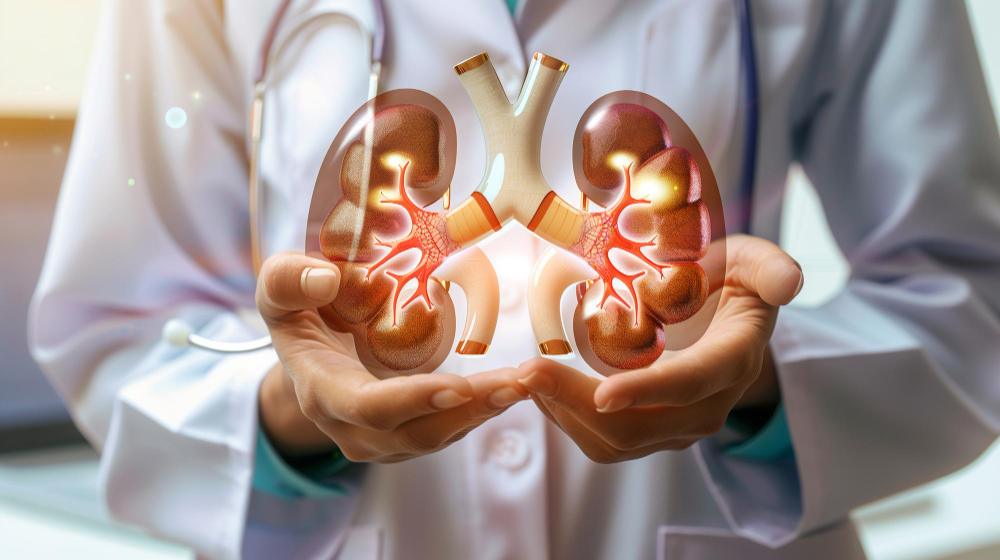Introduction
Chronic Kidney Disease (CKD) is a growing global health concern, affecting millions of people worldwide. It is a condition characterized by the gradual loss of kidney function over time, leading to the accumulation of waste products and fluid imbalances in the body. While CKD is a progressive disease, proper management can significantly slow its progression and improve the quality of life for those affected. Among the various management strategies, diet plays a pivotal role in controlling the symptoms and progression of CKD. This blog will delve into how dietary choices impact CKD management, providing insights into the best practices for maintaining kidney health through nutrition.
Understanding Chronic Kidney Disease
Chronic Kidney Disease is typically classified into five stages, ranging from mild damage in Stage 1 to complete kidney failure in Stage 5. The kidneys perform vital functions, such as filtering waste and excess fluids from the blood, regulating blood pressure, and maintaining electrolyte balance. When kidney function deteriorates, these processes are compromised, leading to a host of health issues, including high blood pressure, anemia, bone disease, and cardiovascular complications.
The Role of Diet in CKD Management
Dietary management is a cornerstone of CKD treatment. The right diet can help manage symptoms, reduce the risk of complications, and slow the progression of the disease. Here’s how diet influences CKD management:
Protein Intake:
- Why It Matters: The kidneys are responsible for filtering waste products from protein metabolism. In CKD, excessive protein intake can increase the workload on the kidneys, accelerating damage.
- Dietary Guidelines: Patients with CKD are often advised to follow a low-protein diet to reduce the strain on their kidneys. However, the amount of protein needed varies based on the stage of CKD and the patient’s overall health. It is crucial to consult with a healthcare provider to determine the appropriate level of protein intake. High-quality protein sources, such as lean meats, eggs, and dairy products, are recommended in controlled portions.
Sodium Management:
- Why It Matters: Sodium plays a significant role in blood pressure regulation. High sodium intake can lead to fluid retention and elevated blood pressure, both of which can exacerbate kidney damage.
- Dietary Guidelines: CKD patients are advised to limit their sodium intake to help control blood pressure and reduce the risk of heart disease. This means avoiding processed foods, canned soups, salted snacks, and restaurant meals, which are often high in sodium. Instead, opt for fresh fruits, vegetables, and home-cooked meals seasoned with herbs and spices rather than salt.
Potassium Control:
- Why It Matters: Potassium is an essential mineral that regulates heart function and muscle contractions. However, in CKD, the kidneys may struggle to maintain proper potassium levels, leading to either hyperkalemia (high potassium) or hypokalemia (low potassium), both of which can be dangerous.
- Dietary Guidelines: Depending on the stage of CKD, patients may need to monitor and adjust their potassium intake. Foods high in potassium, such as bananas, oranges, potatoes, and spinach, may need to be limited. Patients should work with a dietitian to tailor their diet according to their potassium levels, ensuring they consume enough potassium without exceeding safe limits.
Phosphorus Management:
- Why It Matters: The kidneys also regulate phosphorus levels in the body. In CKD, phosphorus can accumulate in the blood, leading to bone and cardiovascular issues.
- Dietary Guidelines: CKD patients are advised to limit foods high in phosphorus, such as dairy products, nuts, seeds, and colas. It’s also important to avoid foods with added phosphorus, which is often found in processed foods and soft drinks. A dietitian can help identify hidden sources of phosphorus and suggest appropriate dietary substitutes.
Fluid Management:
- Why It Matters: Fluid balance is crucial in CKD management, particularly in the later stages of the disease. Excess fluid can lead to swelling, high blood pressure, and heart failure.
- Dietary Guidelines: Fluid restrictions may be necessary for some CKD patients, especially those on dialysis. It’s important to consider not just drinks but also foods that contain water, such as soups, fruits, and vegetables. A healthcare provider can guide patients on how much fluid they should consume daily.
The Benefits of a Well-Managed CKD Diet:
A well-managed CKD diet can have numerous benefits, including:
- Slowing Disease Progression: By reducing the burden on the kidneys, a CKD-specific diet can help slow the progression of the disease, delaying the need for dialysis or a kidney transplant.
- Managing Symptoms: Proper nutrition can help manage the symptoms of CKD, such as swelling, fatigue, and difficulty breathing, by controlling blood pressure, electrolyte balance, and fluid levels.
- Improving Quality of Life: Patients who adhere to a CKD-specific diet often experience better overall health, increased energy levels, and improved well-being.
- Reducing Complications: A tailored diet can help prevent or manage complications associated with CKD, such as cardiovascular disease, bone disorders, and anemia.
Conclusion
Dietary management is a powerful tool in the fight against Chronic Kidney Disease. By making informed food choices and working closely with healthcare providers, CKD patients can take control of their condition, slow its progression, and improve their quality of life. It’s never too late to start making dietary changes that benefit your kidneys.
Contact DocTrePat for personalized guidance on managing CKD through diet and nutrition.

